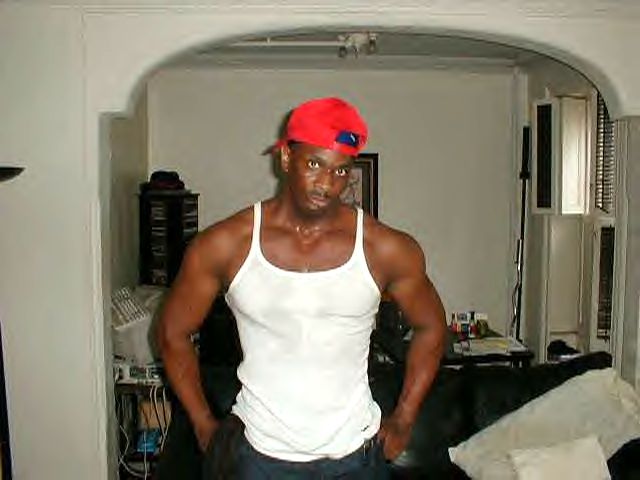Brother, Where Art Thou?

The biggest question I had after viewing the new film Brother to Brother—and I had many, including, why did I just waste ten bucks?—was the origin of the film’s title. Why was this called “brother to brother”, when most of the black men in this celebrated new film do not like each other, are confrontational, and exhibit various degrees of self-hatred?
The answer can be found in an interview with director Rodney Evans. “The movie was inspired by this anthology of Black gay writing called Brother to Brother," he says. "It was edited by Essex Hemphill. … I thought the piece was about relationships between Black men; the relationships were not necessarily sexual and the men were not necessarily gay.”
Well that answers my next question: how can you build a “Black gay” film around characters who never have sex with other Black men, just white ones? Maybe I’m just being the hypercritical New York media type, but leaving this film, I thought that me and other audience members had seen different movies. I heard groups and couples saying they “liked it." An interracial couple walking ahead of me, arm in arm, sharing popcorn, remarked that it was a “brave effort.”
It certainly was brave, because the film is a bore. The plot ostensibly seeks to explain the peculiar plight of gay Black men, facing rejection at school, socially and professionally. It stars Anthony Mackie as Perry, a young writer/author/student. Mackie recently starred in Spike Lee’s She Hate Me, so I found it very brave of him to add this tiresome art film to his credits.
Perry bonds with a legendary Black gay poet who lives at the homeless shelter where he works. The poet is attracted to the young man, but their relationship is chaste, and cathartic for both. (Stop yawning) The older man regales the student with memories of the Harlem Renaissance, which is told in flashback and black and white. Langston Hughes and Zora Neale Hurston are featured prominently. And at the end, the older man’s faith in love and humanity is restored, he dies, and Perry
If you hear violins playing, its because the plot and characters are as stereotypical as they sound. Anthony Mackie does the best he can with Evans’ dialolgue, but Perry’s character is wooden. He is whiny, one-dimensional, and I feel, his worst enemy. In his black studies class, he constantly argues with other students about the misfortune of being gay. He taunts and name calls another student who ultimately fag bashes him. In flashback, we see that his rage began after his parents threw him out of the house, after he was caught in his room kissing a
Memo: Taking proactive steps sometimes helps. Locking the door. Going to another location. Not bringing up your homosexuality in classes all the time. Try not to call other students bad names. But in this movie, everyone is a victim, and no one is ever a volunteer. You're treated to a widescreen AA meeting. “Hi, my name is Perry and I’m a victimized gay black man.” “Hi Perry!”
Perry’s character also feels victimized at school, which also confused me. The exteriors were of the Butler Library and other well known locations on Columbia University’s campus. But the students in Perry’s small class seemed more like they were at IS 666, not at all what you would expect in an Ivy league school. (And I know just a little bit about that) They are rude, hostile and seemed more appropriate in a junior high school.
The one character that Perry bonds with at
Perry’s relationship with poet Bruce Nugent is also borderline. The character is played by veteran actor Roger Robinson, who is the standout performer of the film. Robinson has been acting since the 70s, having been a recurring actor on Kojak, Get Christie Love, Law and Order and many other shows. His Nugent is serene yet aplomb, whimsical but probing. But the “younger’ Nugent during the Harlem Renaissance was an alcoholic, color conscious hedonist, who didn’t work as hard as Langston or Zora, and called them sell-outs. Maybe that's why he ended up in the homeless shelter instead of on Striver's Row. He's also in white men. The flashback scenes were replete with Nugent doing the do with numerous white men back in the 20s. And the fascination continus to present. He tells Perry, "I saw you with that fine white boy at your school."
I could go on and on about this movie, but the film is just plain unlikable. The characters have low self esteem, they look for validation from white men, and are upset with themselves and their white admirers. I don't feel compelled to praise the film, just becaue its about brothas. Its like watching a skinny, bad looking stripper on stage who is getting NO money from anybody. Do you (a) give him a dollar or two because you feel sorry for him? (b) Because he was "brave" to get up there? Or (c) do you do nothing, because you are rewarding bad behavior?
You know what my answer will be.



